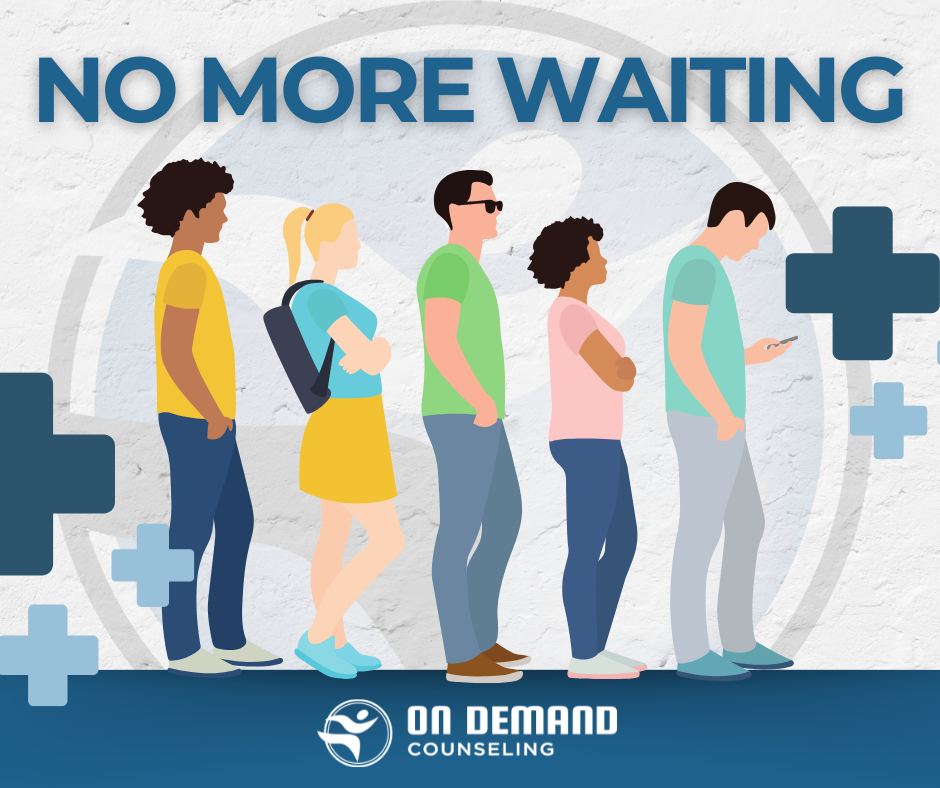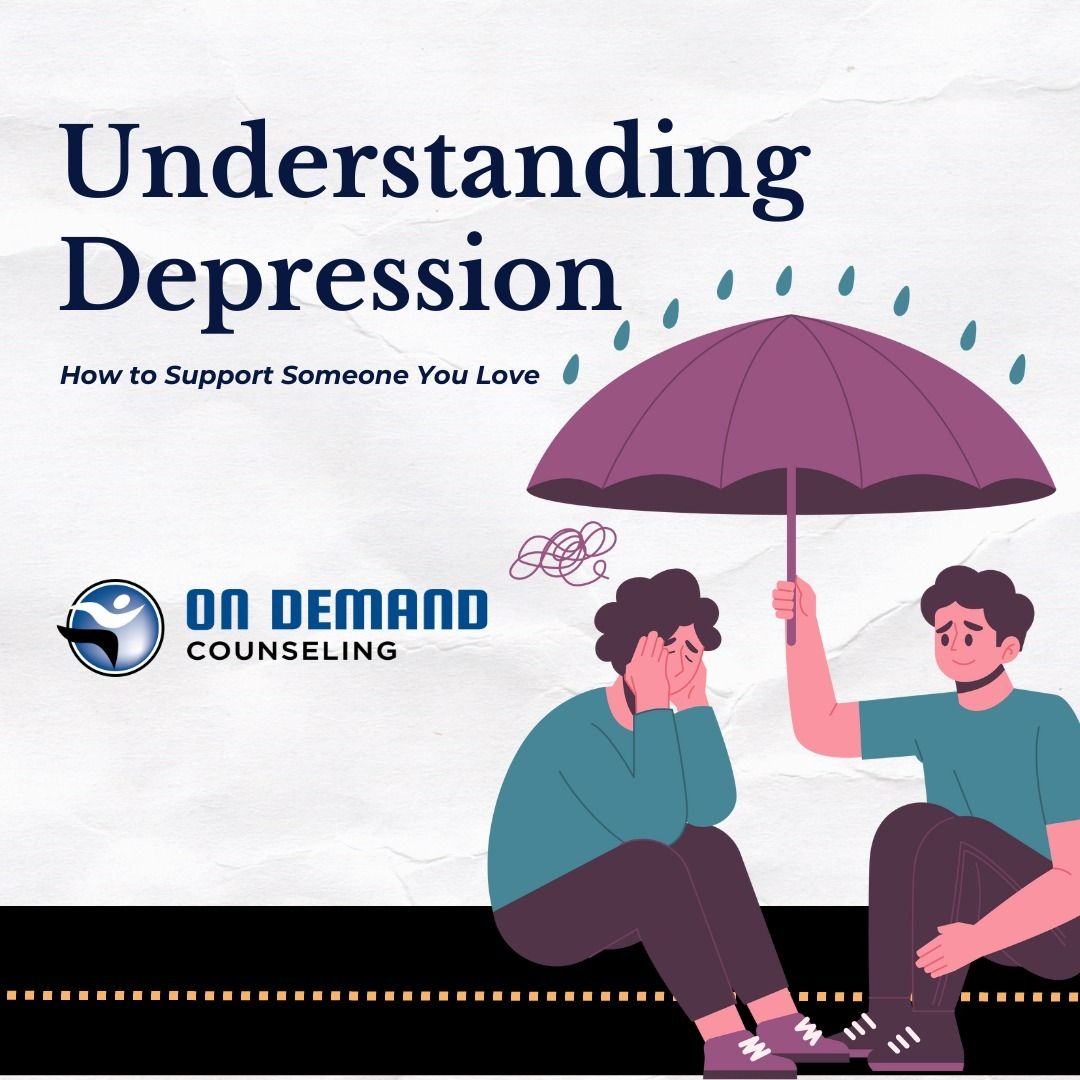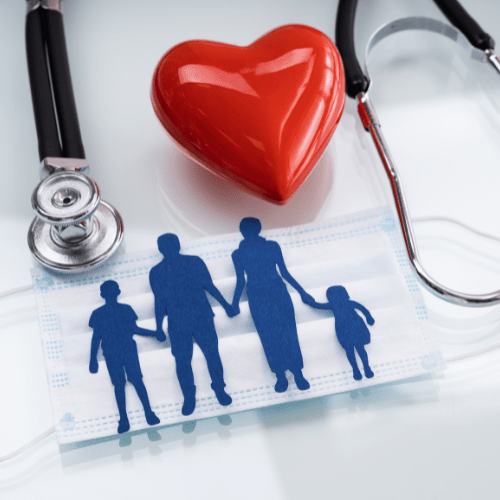7 of the Most Common Co-Occurring Disorders
 Often, individuals who require treatment for drug and alcohol addiction are diagnosed with common co-occurring disorders. According to the Substance Abuse and Mental Health Services Administration (SAMHSA) 2019 National Survey on Drug Use and Health, nearly 50% of individuals with a serious mental illness reported engaging in drug or alcohol abuse.
Often, individuals who require treatment for drug and alcohol addiction are diagnosed with common co-occurring disorders. According to the Substance Abuse and Mental Health Services Administration (SAMHSA) 2019 National Survey on Drug Use and Health, nearly 50% of individuals with a serious mental illness reported engaging in drug or alcohol abuse.
Living with mental illness or a mental health condition can put individuals at a higher risk of drug and alcohol addiction.
At On Demand Counseling, we strive to uncover co-occurring disorders throughout our treatment process. We work with patients to treat these underlying causes of addiction and comorbidities while helping them safely recover from drug and alcohol abuse and addiction.
Below, we discuss some of the most common co-occurring disorders and risk factors we see in our clients.
The 7 Most Common Co-Occurring Disorders That Are Seen With Substance Abuse
While there are many emotional issues that can have a strong impact on a person’s addiction issues, including low self-esteem, guilt, grief and anger management problems, these issues are generally considered symptoms as opposed to disorders. When we mention disorders, we’re referring to the actual diagnosis that leads to the symptoms mentioned above.
1. Generalized anxiety disorder
Generalized anxiety disorder is diagnosed in individuals who experience recurring, frequent anxiety or panic attacks, along with symptoms such as sleep disturbances, restlessness and functional impairment. Living with frequent anxiety can lead individuals to rely on drugs or alcohol for a number of reasons. While some may abuse prescription anxiety medications such as Xanax, others tend to rely on alcohol or illicit drugs to enhance social skills or cope with other anxiety symptoms.
2. Eating disorders
Eating disorders such as anorexia and bulimia are commonly seen in individuals who require addiction treatment. Often individuals will use drugs, such as stimulants or diet pills, as well as alcohol to suppress appetite and increase confidence. Often these problems present along with body dysmorphic disorder, in which an individual is excessively critical of their own appearance and obsesses over imagined flaws with their own body.
While eating disorders are often seen in young adults, they can occur at any age.
3. Bipolar disorder
Individuals with bipolar disorder are particularly susceptible to drug and alcohol abuse and addiction. This mental illness is caused by a chemical imbalance in the brain that causes the sufferer to experience uncontrollable, severe episodes of depression and mania. Many individuals who live with bipolar disorder self-medicate to reduce the intensity of these episodes, which ultimately leads to an increase in episodes and severe addiction.
4. Post-traumatic stress disorder
Post-traumatic stress disorder (PTSD) develops after a person experiences events that cause extreme stress and in some cases are life-threatening. Some examples include violent crimes, war and car accidents. Typically, individuals with PTSD experience flashbacks and night terrors. Some of these people choose to relieve their symptoms with alcohol or drugs, which can lead to further disruption in sleep and emotional balance.
5. Personality disorders and mood disorders
Personality and mood disorders, such as obsessive-compulsive disorder and borderline personality disorder (BPD), can be characterized by a variety of symptoms. BPD is among the most common of these disorders and can involve symptoms such as impulsive behavior, severe mood swings and intense emotional imbalance. These people often have difficulty maintaining relationships with others, and some turn to drugs and alcohol as a coping mechanism.
6. Schizophrenia
Schizophrenia is a severe mental health condition that causes individuals to experience hallucinations, psychosis, delusions and disorganized thinking. Many schizophrenics become unable to distinguish between reality and fantasy, and it’s not uncommon for those living with this disorder to turn to drugs or alcohol to cope with these experiences.
7. Attention deficit hyperactivity disorder
Attention deficit hyperactivity disorder (ADHD) is often diagnosed in children and young adults. It’s characterized by an inability to focus, impulsiveness and hyperactive behavior. Typically, those with this condition are offered prescription medications, including stimulants. We often see young adults who have begun abusing their prescriptions, as well as those who are relying on alcohol or other drugs to self-medicate and suppress their symptoms.
Dual Diagnosis Treatment
 When treating individuals with a dual diagnosis — that is, those who experience co-occurring mental health disorders and substance abuse disorders — we look to provide a safe recovery plan for ceasing alcohol or drug abuse while ultimately treating the underlying cause.
When treating individuals with a dual diagnosis — that is, those who experience co-occurring mental health disorders and substance abuse disorders — we look to provide a safe recovery plan for ceasing alcohol or drug abuse while ultimately treating the underlying cause.
Our counselors are experienced in treating the most common co-occurring disorders, including those listed above.
While each treatment plan is individualized to meet the needs of the individual, most drug addictions, alcohol addictions, mental illnesses and depressive disorders can be treated using some combination of the following techniques, which are provided at our outpatient treatment centers.
One-on-one counseling
In one-on-one substance use counseling, clients work directly with our counselors to address the root causes of their addictions. This can include uncovering and learning new mental health treatment techniques for underlying medical conditions and mental health conditions, as well as learning coping mechanisms for symptoms and related stresses.
Cognitive behavioral therapy
Cognitive behavioral therapy (CBT) is a type of psychotherapy that teaches individuals to to change their behaviors and reactions by focusing on the way their thoughts, beliefs and attitudes directly affect their behaviors. By changing the way they think, a person can change their behavior and effectively recover from addictions and substance abuse disorders. In our outpatient drug and alcohol recovery programs, clients work with behavioral health therapists and counselors who carefully guide them through these processes.
Support groups
Peer support groups can be the key to addictions and co-occurring disorder recovery for many individuals. By working as a team, those receiving treatment can discuss their challenges and techniques for coping with other individuals who are facing or have faced the same experiences.
Medication-assisted treatment
In some cases, clients may require medication-assisted treatment (MAT). By using certain medications to manage symptoms that are associated with mental health disorders, individuals can begin to manage these problems without the use of alcohol or illicit drugs. MAT may also be used to help individuals manage withdrawal symptoms in some cases. It’s important to note that MAT is only used when necessary and may not be useful in all cases.
Aftercare
Aftercare is provided as part of a long-term addiction treatment program. Upon completion of an intensive or general outpatient program, individuals can participate in aftercare, which typically involves a combination of weekly or bi-weekly group therapy and regular one-on-one counseling.
Determining If Outpatient Addiction Treatment Is the Right Choice for Your Co-Occurring Disorder
Substance use disorders require professional treatment, regardless of common co-occurring disorders that may accompany them. However, for some, outpatient addiction rehab isn’t the right choice. If you or a loved one is suffering from addiction or requires dual-diagnosis treatment, it’s best to first speak to a mental health care provider who can guide you towards the right treatment options.
Quick Links

Contact Us
We’re here to assist you. Contact our dedicated support team for any inquiries or assistance you may need.






